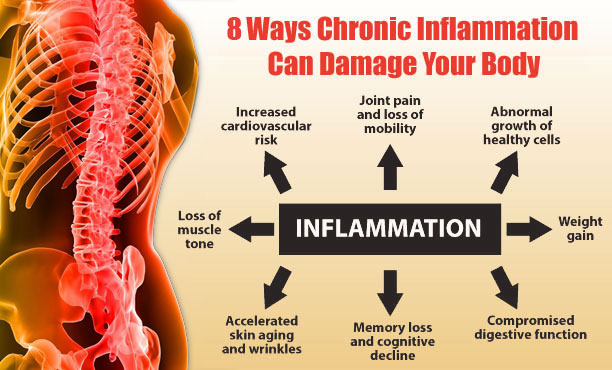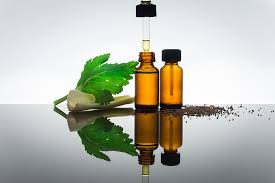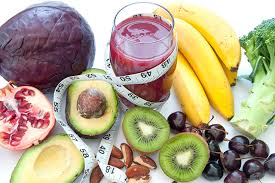Hormones are your body’s chemical messengers. They travel in your bloodstream to tissues and organs. They work slowly, over time, and affect many different processes, including metabolism, sexual function, reproduction, mood and much more. Endocrine glands, which are special groups of cells, make hormones. The major endocrine glands are the pituitary, pineal, thymus, thyroid, adrenal glands and pancreas. In addition, men produce hormones in their testes and women produce them in their ovaries. Hormones are produced in a complex process, but depend on beneficial fats and cholesterol, so lack of these important dietary factors can cause hormone problems simply because the body doesn’t have the building blocks to make them. The entire endocrine system works together to control the level of hormones circulating throughout your body, and if one or more is even slightly imbalanced it can cause widespread, major health problems.
Hormonal imbalances are caused by a combination of factors such as diet, medical history, genetics, stress levels and exposure to toxins from the environment. Research shows that your gut health plays a significant role in hormone regulation. If you have leaky gut syndrome or a lack of beneficial probiotic bacteria lining your intestinal wall, you are more susceptible to hormonal problems, including diabetes and obesity. That’s because inflammation usually stems from your gut and then impacts nearly every aspect of your health. Some of the most common signs and symptoms of hormone imbalances include: infertility and irregular periods, weight gain or weight loss (that’s unexplained and not due to intentional changes in your diet), depression and anxiety, fatigue, insomnia, low libido, changes in appetite, digestive issues, hair loss and hair thinning.
Conventional treatments for hormonal imbalances usually include synthetic hormone replacement therapies, birth control pills, insulin injections, thyroid medications and more. Unfortunately, for the majority of people suffering from hormonal disorders, relying on these types of synthetic treatments often does three things. It makes people dependent on taking prescription drugs for the rest of their lives in order to keep symptoms under control. It simply masks the patient’s symptoms but doesn’t solve them, which means that the patient can continue to develop abnormalities in other areas of the body while the disorder progresses. It causes a higher risk for serious side effects such as stroke, osteoporosis, anxiety, reproductive problems, cancer and more.
Hormones — such as oestrogen, testosterone, adrenaline and insulin — are extremely important chemical messengers that affect many aspects of your overall health. Hormones are secreted by various glands and organs, including your thyroid, adrenals, pituitary, ovaries, testicles and pancreas. The entire endocrine system works together to control the level of hormones circulating throughout your body, and if one or more is even slightly imbalanced it can cause widespread, major health problems.
Eating a variety of foods high in short, medium and long-chain fatty acids is the key to keeping your hormones in check. Your body needs various types of fats to create hormones, including saturated fat and cholesterol. Not only are these essential fats fundamental building blocks for hormone production, but they keep inflammation levels low, boost your metabolism and promote weight loss. Healthy fats have the opposite effect of refined carbohydrates, which lead to inflammation and can mess with the balance of your hormones.
Four sources of anti-inflammatory, healthy fats are coconut oil, avocados, grass-fed butter and wild-caught salmon. Coconut oil has many uses. For example, coconut oil (or cream/milk) has natural anti-viral, anti-fungal, anti-bacterial and fat-burning properties. Avocado’s benefits include improving heart health, lowering inflammation, controlling your appetite and contributing to your daily intake of fibre and nutrients such as potassium.
Salmon is one of the best sources of omega-3 fatty acids, which are known to lower inflammation and help with cognitive functions. Omega-3 fatty acids are a large component of brain-cell membranes and are important for cell-to-cell communication in the brain. To avoid antibiotics and other chemicals stay clear of farmed salmon as much as possible and also steer clear of oils that are high in omega-6 fats (safflower, sunflower, vegetable, corn, cottonseed, canola, soybean and peanut), and load up on rich sources of natural omega-3s instead (wild fish, flaxseed, chia seeds, walnuts and grass-fed animal products). There is a type of omega-6 fat that you want to get in your diet called GLA. GLA (gamma-linoleic acid) can be taken in supplement form by using evening primrose oil or borage oil, and it’s also found in hemp seeds.
Adaptogen herbs are a unique class of healing plants that promote hormone balance and protect the body from a wide variety of diseases, including those caused by excess stress. In addition to boosting immune function and combating stress, research shows that various adapotogens such as medicinal mushrooms, rhodiola, Holy basil and thyme (both the common garden variety and broad leaf thyme which is also known as wild marjoram or Mexican marjoram) can: lower cholesterol naturally, reduce anxiety and depression, reduce brain cell degeneration, stabilize blood sugar and insulin levels and support adrenal gland functions. Thyme oil improves progesterone production, which helps to treat or relieve health issues like infertility, menopause, depression, fibroids, hair loss and insomnia. To help balance your hormones naturally, add 2 drops of thyme oil to a warm water bath or rub 2-3 drops with equal parts coconut oil into your abdomen. Holy basil, which is also known as tulsi, helps to regulate cortisol levels, thereby working as a natural remedy for anxiety and emotional stress. Studies show that holy basil can also protect your organs and tissues against chemical stress from pollutants and heavy metals, which are other factors that can lead to hormone imbalance.
Maca is a hormone boosting tuber originally from Peru. Women who use it often see improvements in fertility, reduction in PMS and better skin/hair. It can help men with sperm production, testosterone levels and muscle composition. Maca is a good source of minerals and essential fatty acids, which is one of the ways it supports hormone balance, however, its use should be discontinued during pregnancy.
Ashwagandha, in particular, can be extremely effective at balancing hormones. It benefits thyroid function because it promotes the scavenging of free radicals that cause cellular damage. Ashwagandha can be used to support a sluggish or overactive thyroid, and it can also help to overcome adrenal fatigue. Your adrenals can become overtaxed when you experience too much emotional, physical or mental stress, leading to the disruption of hormones like adrenaline, cortisol and progesterone.
Chaste Tree Berry nourishes the pituitary gland. It lowers prolactin and raises progesterone. For some women, this alone will improve symptoms.
Red Raspberry Leaf is a well know fertility herb that is also helpful in reducing PMS and cramping. It has a high nutrient profile and is especially high in calcium and is a uterine tonic. It is available in capsule form but makes an excellent hot or cold tea. 
Magnesium is vital for hundreds of functions within the human body and many of us are deficient in this mineral. There are several different ways to get magnesium into your system. Topical application, by applying magnesium oil to the skin is often the most effective option for those with a damaged digestive tract or severe deficiency. Epsom salt baths or a refreshing drink of organic cocoa with a teaspoonful of black strap molasses are other ways to get magnesium into your body.
Vitamin D, a pre-hormone is supportive of hormone function. It is best obtained from the sun if possible, or from a D3 supplement or Cod Liver Oil (a good source of Omega-3 and Vitamin D). Make sure not to get too much, and optimally, get Serum Vitamin D levels checked to monitor levels.
Gelatin and collagen powders support hormone production and digestive health in various ways. Gelatin powder can actually “gel” while collagen protein does not but is easily added to soups, smoothies, coffee, tea or any other food.
Traditional Chinese Medicine practitioners believe that the emotions of fear cause disease in your reproductive organs, kidneys and adrenals, affecting cortisol levels. This can lead to serious conditions like PCOS and infertility. The emotions of frustration, impatience and un-forgiveness cause disease in your liver, which can lead to an oestrogen imbalance and emotions of worry and anxiety can cause issues with your insulin levels, which can then affect several hormones.
A major component of balancing your hormones naturally is addressing any emotional imbalances that you are dealing with. You can do this by reducing stress levels, engaging in personal reflection and taking time for yourself. Practicing meditation or healing prayer can be extremely beneficial, and so can deep breathing exercises, spending time outdoors and exercising every day. Traditional Chinese Medicine therapies like acupuncture and massage can also help to improve hormonal balance, combat stress and improve blood flow.
Your emotions and hormones are connected, so by working to balance one, you are impacting the other. If you are ever feeling stressed, angry, agitated or even fearful, understand that this is affecting your hormone balance and can lead to even bigger health issues. Keep working on your emotional balance by making it part of your daily routine.
According to Traditional Chinese Medicine, internal emotions have a direct impact on a person’s health and addressing emotional imbalances, external factors and lifestyle choices can help to prevent health conditions associated with hormonal imbalances.
To balance your hormones naturally, it’s important that you eliminate toxins in your body by avoiding conventional body care products that are made with potentially-harmful chemicals including DEA, parabens, propylene glycol and sodium lauryl sulfate. A better alternative is to use natural products made with ingredients like essential oils, coconut oil, shea butter and castor oil.
Clary sage helps to balance oestrogen levels because it contains natural phyto- oestrogens. It can be used to regulate your menstrual cycle, relieve PMS symptoms, treat infertility and PCOS, and even reduce the chances of uterine and ovarian cancer. It also serves as a natural remedy for emotional imbalances, like depression and anxiety. Diffuse 3-5 drops of clary sage to help balance hormone levels and relieve stress. To ease cramps and pain, massage 5 drops of clary sage with 5 drops of coconut oil into your stomach and any other area of concern.
Problems with your gut health have been found to cause autoimmune reactions, including thyroid disorders. Use fennel essential oil to relax your body, improve your digestion and gut health, boost your metabolism and reduce inflammation. You can rub 2 drops of fennel into your stomach or add 1-2 drops to a class of warm water or tea to take it internally.
Lavender: Lavender oil promotes emotional balance, as it can help to treat anxiety, depression, moodiness and stress. It can also be used to promote restful sleep, which will help to balance your hormone levels as well. Diffuse 5 drops of lavender oil at home, add 5 drops to a warm water bath or apply 3 drops topically to your temples, back or neck or wrists.
Sandalwood: Sandalwood essential oil can be used to increase your libido, reduce stress, promote relaxation, boost mental clarity and even help you to relax. The powerful fragrance triggers peaceful feelings and results in the overall reduction of stress that can lead to hormone imbalances. Inhale sandalwood directly from the bottle, diffuse it at home or apply 2-3 drops to your wrists and bottoms of the feet.
Get a lot of natural light during the day, and spend at least 30 minutes outside each day if possible. The wide-spectrum of natural light helps boost serotonin levels which balance melatonin levels at night. In fact, sun gazing within the first hour of sun rise is extremely beneficial for balancing hormones, decalcifying the pineal gland and improving eyesight. Remember, if the pineal gland is not decalcified it will not vibrate at the higher frequencies necessary for optimum production of four major hormones: melatonin, serotonin, DMT and melanin.
Avoid artificial light as much as possible after the sun goes down. Install F.lux (it is free) on all computers and devices to reduce blue light and help you sleep better (it is also easier on the eyes). Drink enough water during the day and stop drinking about 2 hours before bed so you don’t have to wake up to use the bathroom. Take a soothing salt bath about an hour before bed with some relaxing music or a great book. Pray, meditate or find a way to reduce stress.
It’s sometimes necessary to supplement in order to fill nutritional voids that can be leading to a hormone imbalance. Evening primrose oil contains omega-6 fatty acids, such as LA and GLA, that support overall hormonal function. Supplementing with evening primrose oil can help to relieve premenstrual and PCOS symptoms. It also helps to create a healthy environment for conception.
Vitamin D: Vitamin D almost acts like a hormone inside the body and has important implications for keeping inflammation levels low. This is why people who live in dark areas often suffer from seasonal depression and other health problems unless they supplement with vitamin D. Sunshine is really the best way to optimize vitamin D levels because your bare skin actually makes vitamin D on its own when exposed to even small amounts of direct sunlight. Most people should supplement with around 2,000–5,000 IU daily of vitamin D3 if they live in dark areas, during the winter, and on days when they’re not in the sun.
Bone broth soothes the digestive system and supplies the body with nutrients that can be easily absorbed. Consuming bone broth or protein powder made from bone broth is especially beneficial to your health because it contains healing compounds like collagen, proline, glycine and glutamine, which have the powder to boost your overall health.
Probiotics: Probiotics can aid in repairing your gut lining, which in turn can balance your hormones. When undigested food particles, like gluten for example, leak through your gut into y our bloodstream, it causes disease-causing inflammation that impacts the entire body — especially glands like the thyroid that is very susceptible to heightened inflammation. Most people with leaky gut have a deficiency of probiotics in their guts. Probiotics are healthy bacteria that can actually improve your production and regulation of key hormones like insulin, ghrelin and leptin.
our bloodstream, it causes disease-causing inflammation that impacts the entire body — especially glands like the thyroid that is very susceptible to heightened inflammation. Most people with leaky gut have a deficiency of probiotics in their guts. Probiotics are healthy bacteria that can actually improve your production and regulation of key hormones like insulin, ghrelin and leptin.
The side effects of some medication can disrupt your hormone balance, leading to fatigue, appetite changes, altered sleeping patterns, low libido, sadness and even depression. Some medications that can mess with your hormone balance include corticosteroids, stimulants, statins, dopamine agonists, rexinoids and glucocorticoids. Beware of your medications, talk to your doctor about the side effects and research natural alternatives whenever possible.
Birth control is another dangerous medication that alters hormone levels. “The pill” is a type of hormone therapy that raises oestrogen levels to such dangerous levels that it can cause many complications. There are many other (safer) ways to prevent pregnancy.
Unless you get 7 to 8 hours of sleep every night, you are doing your body no favours. A lack of sleep or disturbing your natural circadian rhythm can be one of the worst habits contributing to a hormone imbalance. A lack of sleep, long-term use of corticosteroids and chronic stress are three of the biggest contributors to high cortisol levels. A report published in the Indian Journal of Endocrinology and Metabolism stated that “Stress can lead to changes in the serum level of many hormones including glucocorticoids, catecholamines, growth hormone and prolactin.” 
Sleep helps balance stress hormones, builds energy and allows the body to recover properly. Excessive stress and poor sleep are linked with higher levels of morning cortisol, decreased immunity, trouble with work performance, and a higher susceptibility to anxiety, weight gain and depression. To maximize hormone function, ideally try to get to bed by 10 p.m. and stick with a regular sleep-wake-cycle as much as possible.
In some cases, synthetic hormonal treatments (such as insulin or thyroid medication) will be necessary to treat a hormonal imbalance. However, the majority of people can feel a lot better by making the lifestyle changes described above. For people with diagnosed hormonal disorders — including type 1 or type 2 diabetes, adrenal insufficiency, Addison’s disease, Graves’s disease and Cushing’s syndrome, for example, it is always important to speak with your doctor before discontinuing medication use. The natural treatments above can still help you overcome your illness and greatly reduce symptoms, but these recommendations should not take the place of medical supervision. Because hormone imbalances vary so widely in terms of severity of symptoms, always keep track of how you’re feeling, do your research and evaluate how you respond to different treatments.
Natural treatments include eating an anti-inflammatory diet, consuming enough omega-3s, getting good sleep, exercising and controlling stress.
Disclaimer: The information given here is not to be considered as medical advice. You should always contact your medical practitioner regarding matters that affect your health.
